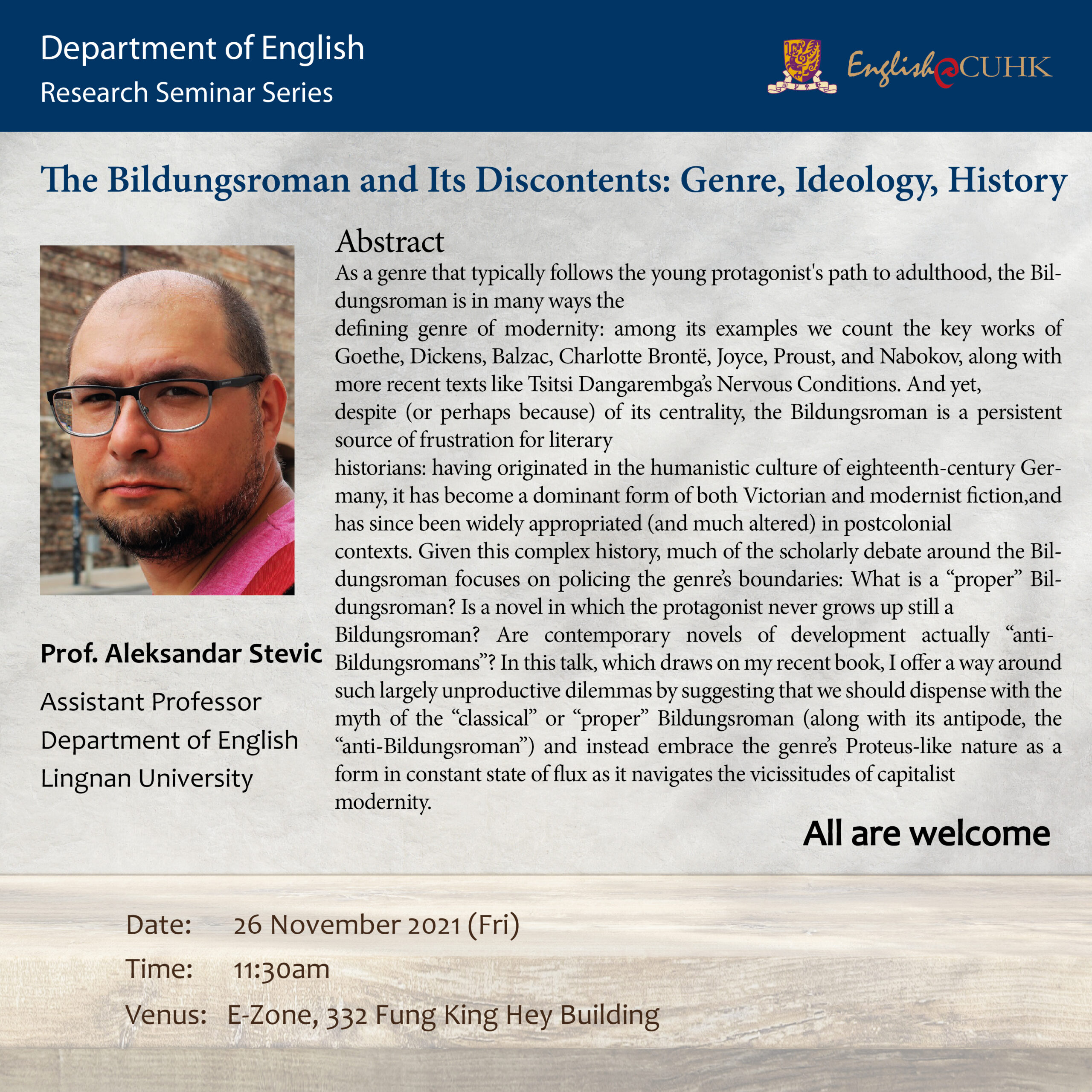The Bildungsroman and Its Discontents: Genre, Ideology, History
Prof. Aleksandar Stevic
Assistant Professor, Department of English
Lingnan University
Abstract:
As a genre that typically follows the young protagonist’s path to adulthood, the Bildungsroman is in many ways the defining genre of modernity: among its examples we count the key works of Goethe, Dickens, Balzac, Charlotte Brontë, Joyce, Proust, and Nabokov, along with more recent texts like Tsitsi Dangarembga’s Nervous Conditions. And yet, despite (or perhaps because) of its centrality, the Bildungsroman is a persistent source of frustration for literary historians: having originated in the humanistic culture of eighteenth-century Germany, it has become a dominant form of both Victorian and modernist fiction,and has since been widely appropriated (and much altered) in postcolonial contexts. Given this complex history, much of the scholarly debate around the Bildungsroman focuses on policing the genre’s boundaries: What is a “proper” Bildungsroman? Is a novel in which the protagonist never grows up still a Bildungsroman? Are contemporary novels of development actually “anti-Bildungsromans”? In this talk, which draws on my recent book, I offer a way around such largely unproductive dilemmas by suggesting that we should dispense with the myth of the “classical” or “proper” Bildungsroman (along with its antipode, the “anti-Bildungsroman”) and instead embrace the genre’s Proteus-like nature as a form in constant state of flux as it navigates the vicissitudes of capitalist modernity.
Bio:
Aleksandar Stevic is assistant professor of English at Lingnan University. He holds degrees from the University of Belgrade and Yale University and has previously taught at Hampshire College in Massachusetts, Qatar University, and King’s College, Cambridge. His research focuses primarily on the intersections of the history of the novel with social and intellectual history. He is the author of Falling Short: The Bildungsroman and the Crisis of Self-Fashioning (University of Virginia Press, 2020), co-editor of The Limits of Cosmopolitanism: Globalization and Its Discontents in Contemporary Literature (Routledge, 2019), the editor of The Politics of Tragedy (Belgrade, 2014), and the translator of a several works into Serbo-Croatian, including, most recently, Djuna Barnes’modernist novel Nightwood.







